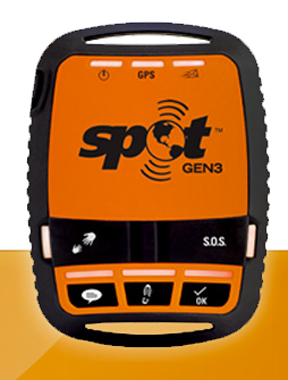Orbital Tracking Corp., (TRKK) (the "Company") has completed the final delivery and setup of new SPOT Gen3 messengers for the UK Forestry Commission as part of its partnership with Globalstar (NYSE MKT: GSAT).

The SPOT Gen3, is a small, rugged, pocket-sized GPS based tracker designed for use in remote locations, allowing the user to email or text pre-arranged messages to designated family or friends. Under terms of the sales and support contract signed in February by Orbital Tracking Corp's Global Telesat Communications (GTC) subsidiary, Globalstar and the UK Forestry Commission, up to 550 of the devices will be used by the Forestry Commission to enhance the safety of its staff when working in areas with unreliable mobile phone and radio communications. In an emergency situation, lone workers can press a single button on the SPOT Gen3 to alert emergency services via the GEOS International Emergency Response Coordination Centre (IERCC).
Globalstar is a leading provider of mobile satellite voice and data services, leveraging the world's newest mobile satellite communications network. The company has more than 688,000 customers in countries around the world. Orbital Tracking Corp., through its GTC and Orbital Satcomm units, have a combined customer base of more than 12,000 individuals and organizations, including government agencies, police and fire departments, drug enforcement agencies, disaster relief organizations, security forces, military, defense and surveillance industry users. Orbital Tracking Corp has global presence in more than 11 markets including North America, the EU, Latin America, Africa and Asia.
Orbital Tracking Corp operates through two subsidiaries; US-based Orbital Satcomm and EU-based Global Telesat Communications. The Company provides global distribution of a wide range of portable satellite voice, data and tracking solutions which provide communications services in areas of the world where land-based communication networks do not exist or are limited.


